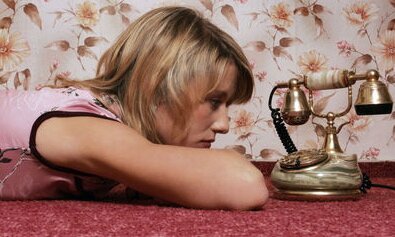 Earlier this week channel four broadcasted a show titled Sex, Lies and Rinsing Guys. For a start I found it interesting that the word ‘sex’ was in the title of this show – perhaps that displays something of the producers’ thoughts on this topic – and that it was categorised under ‘sex’ in their archives. The word ‘lies’ also seems very out of place, but I’m fairly sure this was just to add punch to a titillating title. ‘Rinsing’ on the other hand is right on the money.
Earlier this week channel four broadcasted a show titled Sex, Lies and Rinsing Guys. For a start I found it interesting that the word ‘sex’ was in the title of this show – perhaps that displays something of the producers’ thoughts on this topic – and that it was categorised under ‘sex’ in their archives. The word ‘lies’ also seems very out of place, but I’m fairly sure this was just to add punch to a titillating title. ‘Rinsing’ on the other hand is right on the money.
For those of you who still think ‘rinsing’ is something you do after lathering up your hair – and a part of me wishes it still was just that, – I’ll explain: rinsing is an act wherein (young), sexually attractive girls get as much money out of rich (older) men without offering anything more than conversation and company in return. And in some cases, not even that.
The show centered around glamour model Danica Thrall, experienced rinser Jeanette Worthington, and erotic dancer Hollie Capper (pictured). At the beginning of the show all three girls (but Hollie in particular) argued their rinsing pursuits as a necessary and easy way to pay their bills at a time of national financial difficulty. With this thought in mind I watched openly, trying to consider rinsing as a kind of re-distribution of wealth; the 1% vs. the 99%. But as the show continued, it seemed to raise numerous moral and ethical issues.
One of the first things that came to mind was a question of feminism. Although these women do not have sex with their wealthy benefactors, they are selling themselves as an aesthetic product. Make-up, sex appeal and flirtation all seem to be important factors in this. Danica in particular makes the most of her image, posting photographs and setting up her own site of glamour shots. On the one hand they are selling a very particular and almost idealised, Barbie-like image of women, which could be viewed as anti-feminist; it could be argued that these girls are selling a fantasy, pandering to assumed male expectations of beauty, which might be considered counterproductive to feminism as a movement for gender equality. However, there is also a good argument to be made for the view that these women are strengthened in their gender by using their femininity as a power.
This also raises a question of exploitation. Are these women being exploited for their appearance, or are they in fact using their looks to exploit rich men? If the rules of these transactions are clearly laid on the table before any money or gifts change hands, then perhaps everyone is simply in charge of their own well-being. Perhaps exploitation doesn’t even factor into it. Personally I couldn’t help but feel that these girls are exploiting a baser part of the men willing to give them money; although I felt more strongly that these girls are exploiting themselves.
What really left a sour taste in my mouth was what the girls got in return for their beauty. Although at the beginning of the show there was talk of bill-paying and a simple need to survive in a difficult world, the vast majority of what the girls asked for and received were designer handbags, shoes and jewelry, which the girls showed no sign of exchanging for that apparently much needed cash. (Except for Hollie, who asked her mother to put gifts she didn’t particularly like and which weren’t worth much, on eBay.) What became increasingly clear as the show proceeded was that these girls are not in it because they have children to take care of, or because the mortgage needs paying, they are in it because they want men to buy them expensive gifts. When asked what the ultimate gift would be, Hollie – who initially talked about her bills a lot – answered “a lot of surgery”. I’ll leave you to draw your own conclusions from that. Personally I have no problem with wealthy people buying beautiful things for those they deem worthy, particularly in cases where they want to give these gifts, but the pure amount of good these girls are being sent is a little sickening, and their attitude towards the men giving them gifts made me feel quite nauseous. Jeanette in particular seemed affronted when someone wouldn’t buy her something, as though it was her right to receive gifts from rich men simply because she was willing to spend time with them.
The other point to be made is that these girls are perpetuating not only a horrible and largely unrealistic ideal of beauty, but also an unhealthy consumer society. There is a huge difference between appreciating and purchasing beautiful things, allowing yourself some luxury, and being obsessed with the status certain labels and price tags apparently give. In a particularly disgusting moment Jeanette openly admitted that without these designer pieces she would feel “dead inside”.
In essence, rinsing is about making a commodity of conversation and company: both Hollie and Jeanette date men in order to receive the gifts and money they feel they are entitled to. Neither seems at all interested in the men she rinses. Danica deals with things a little differently. She never meets anyone, doing everything online. In the case of some of her benefactors she hasn’t even spoken to them, they simply shower her with gifts from her amazon wish-list. However, in the program there was a scene in which she used Skype to chat with someone who I assume was simply lonely and in need of some fun, flirtatious conversation to make him smile. Danica also has strict rules about never letting the conversation move into ‘adult content’. Unlike the other two girls, she was friendly, chatty and engaging with the other person. This seemed to me to be far more genuine. Although her approach is more businesslike, Danica actually seems to provide something worth paying for, whereas the other two were downright unappreciative of the benefits they received.
Despite my opening paragraph and my slight skepticism over the word “sex” in the title of the program, sex is something that must be discussed when it comes to this topic – despite the fact that the channel four show chose to ignore it, aside from mentioning the lack of sex numerous times. I was surprised to see the topic of financial domination come up on the show. As well as dating men who buy her gifts, Hollie is an online financial dominatrix. The concept of financial domination is one I was introduced to whilst listening to the Savage Lovecast; it is basically a kink wherein rich people (mostly men) get off on having people (mostly women) demand large sums of money from them. It links in with humiliation, where the person receiving the money will verbally degrade their benefactor by telling him/her how pathetic he/she is, having to pay someone for sex or for their company. Something about the fact that this is named and recognised as a kink or a fetish makes me feel better about it. Provided a person does not get into serious financial difficulty, this is a sexual act between two consenting adults who know the rules of the game. Everyone should be allowed the freedom to express their sexuality. And there is of course another side to that: I think we can say with almost complete certainty that there are men who find it sexually arousing to buy things for women. Whether it’s a status and power thing, or a matter of seeing girls wearing the beautiful things he has bought for her, it’s not hard to see why this would be appealing. And for this reason I’m finding it difficult to condemn rinsing.
The other sexual topic that simply has to be discussed is prostitution. Obviously, there is a difference between what these girls do and what prostitutes do, but I also think there is some line blurring. In the case of girls like Danica I think the line is very clear, because she doesn’t meet these people and because she says, outright, that sexual conversation is off the table. However, there is a place in between where girls will flirt and suggest sex in return for gifts, but then not deliver. This seems far more dishonest than either of the extremes. I suppose the main difference between rinsing and prostitution is the intention and the contract. When you hire a prostitute it is very clear what you want and price is something to be discussed as a business transaction. However, in places where prostitution is illegal, many people do not charge for sex but for the pleasure of their company, and sex is a fair assumption within that time. This is where the line blurs for me. This isn’t particularly a problem for me, as I am in favour of prostitution for many reasons, provided it is consensual, fair and safe – perhaps a topic for another article. But I do think these girls are kidding themselves if they believe they are above prostitutes simply because they do not have sex with their benefactors.
Overall what really bothered me about the program and about the act of ‘rinsing’ was the attitude of these girls towards the men, and the obsession with materialism. There have been times when I looked at my bank statement and my course reading list and wished against wish that someone would help me out financially or kindly offer to buy my books for me; or times when I considered publishing an amazon wish-list to people other than my friends and family, just on the off-chance that someone might want to indulge a part of me that is too poor to enjoy luxury; but I can’t imagine feeling okay accepting something from someone I have neither provided a service for nor someone I do not feel genuine affection for.
At the end of the day there are two different sides to the “art” of rinsing: on the one hand it is a business transaction, comparable with but dissimilar to prostitution, and for this reason I feel more comfortable with the way Danica conducts herself. On the other hand, and this is what really bothered me in the cases of Jeanette and Hollie, these girls are taking advantage of someone’s kindness. And with so little gratitude. In fact, they display an extremely distasteful sense of entitlement. And that is what really made me feel cold; the way ‘rinsing’ manipulates organic human interaction and distorts the idea of kindness.
















I, too, watched this programme. Well, I managed to watch it part-way through before the distaste for these individuals won over and I had to switch it off. I can just about understand their life-choice they have made in how they have decided to make their journey through the world but I agree with you in that I was intensely concerned with how there exists in the world a place for such insular materialism. The three women the documentary centred on came across as ultimately poor and wanting in terms of being able to make a meaningful relationship. I was interested to see if the feminist argument would raise its head in the film, but before it had (did it?) I was urged to remove myself from the vision of an empty life filled with possessions but no real substance.
*sigh*
LP x
No, unfortunately no real argument on any of the MANY moral issues the film raised were actually raised in the film; I suppose they’re trying to make a documentary and not ruffle feathers, but still… I was a bit disappointed. I’d have liked to hear what the girls themselves think of prostitution.
First off, I enjoy reading a piece that shared your personal thoughts and insights. Always interesting to see where that brilliant mind of yours goes.
As for the content, it might say more about me than anything else, but I really can’t fault a woman (or anyone) for using what they have to advance their own position. The men who choose to share their riches do so either with the full knowledge of how superficial the exchange is or in complete delusion that some deeper connection is being made. Either way, it is their choice.
That might be the essential thought that came to mind in my reading this piece (and I think watching the documentary would be interesting). A woman can choose to take advantage of her charms, a man can choose to use financial compensation to bring some fun and excitement into his life (and I assume the same is true should the roles be reversed), but ultimately I just can’t bring myself to find a problem with the practice of rinsing.
Is it no harm, no foul? Perhaps. Is it a victimless crime? Doubtful. But I am a believer in personal responsibility and if someone doesn’t want to play their role in this particular dance, then they are free to find their satisfaction elsewhere.
Thank you for sharing.
I too had a hard time arguing that these girls are doing anything wrong; technically they’re not. Everyone knows what they’re getting and everyone is making free choices.
However, it is still handled in a way that displays a complete lack of gratitude and a disgusting love of consumerism (and this is consumerism on another level). That way of interacting with fellow human beings really does sicken me.